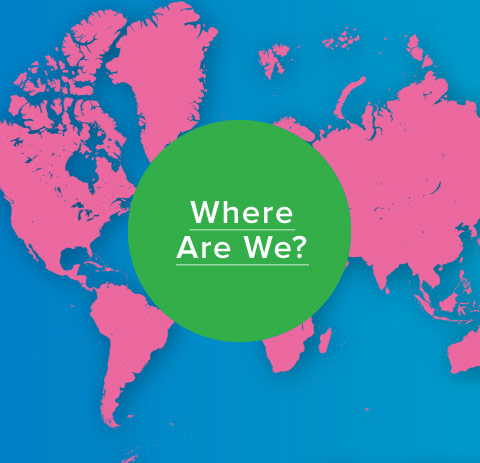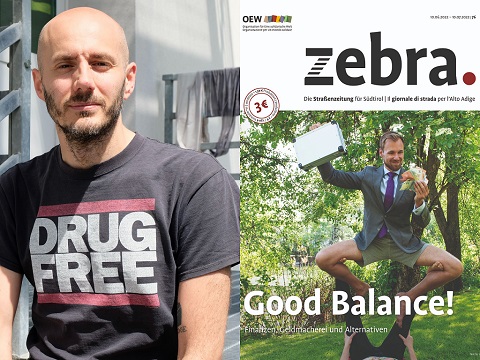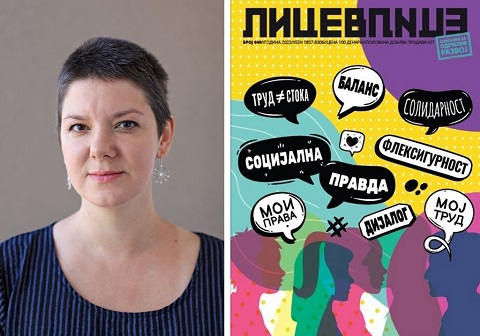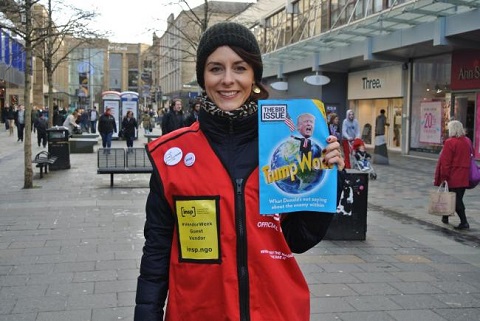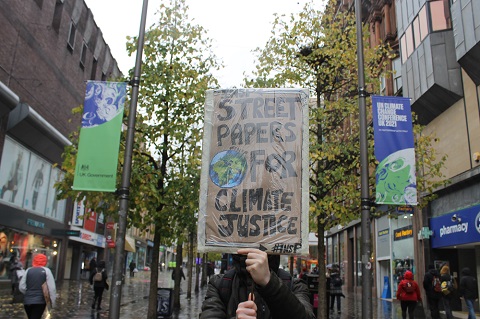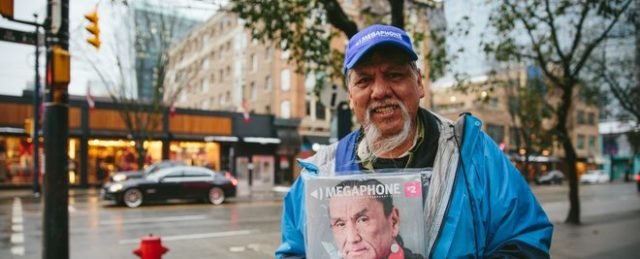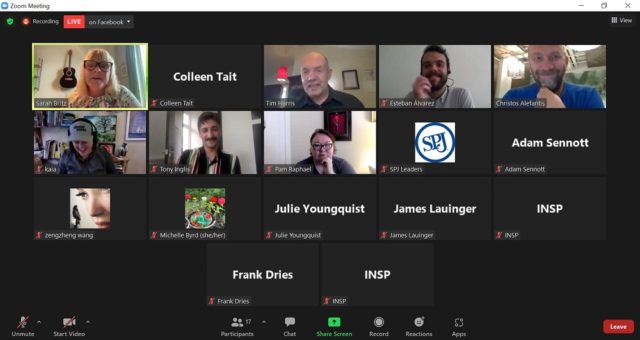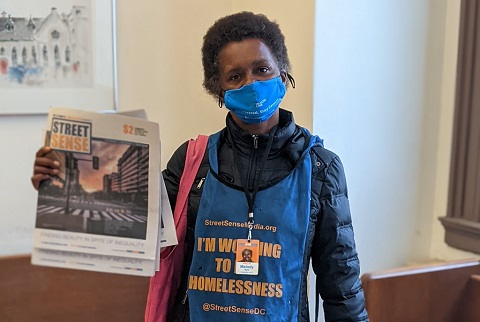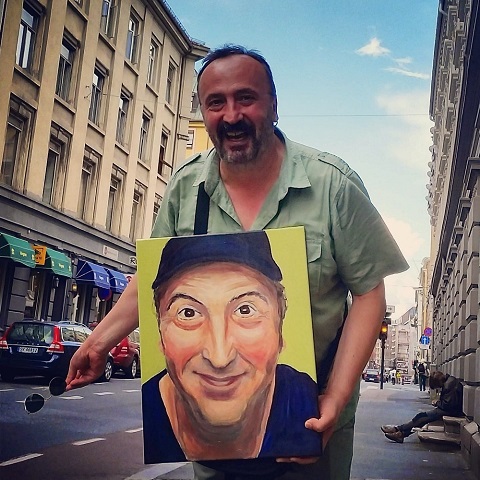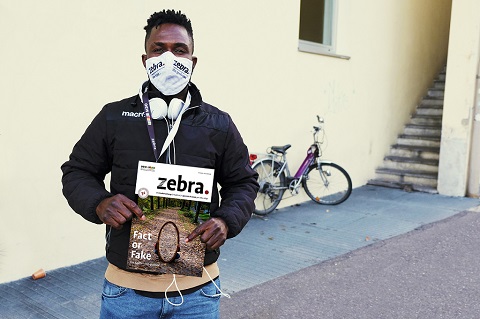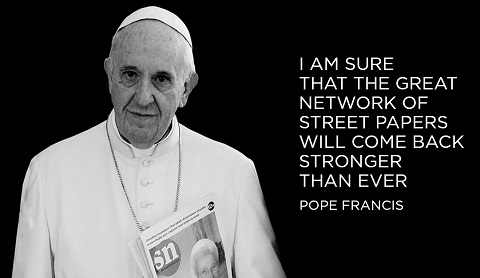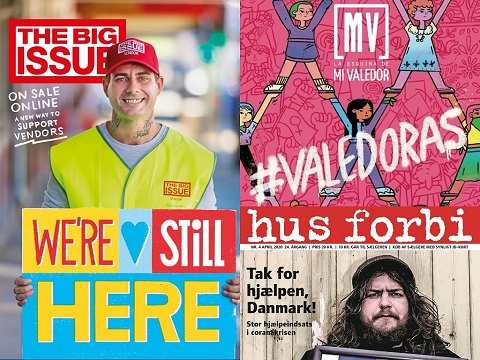Last weekend (Friday 5 July) marked the first time a street paper was sold on the streets of Peru.
Peatón [or “pedestrian” – that is, someone who walks on the street – which is subtitled with “deambulando y creando”, meaning “wandering and creating”] is a brand new publication which seeks to empower homeless and unemployed individuals in Peru to earn an income. Bought by vendors for 1.95 nuevos soles [around 50p] and sold to readers for 4 nuevos soles [about £1], Peatón is a bimonthly street paper, and can be found in the north-western Peruvian city of Piura, the hometown of its founder, Jorge Ledesma.
![The first issue of Peatón. [Courtesy of Jorge Ledesma / Peatón]](https://hub.insp.ngo/wp-content/uploads/2019/07/INSP_Peaton_1.jpg)
Ledesma tells INSP that, even though he was initially unaware of the street paper movement, he fell in love with the idea once he came across it.
“It started last year when I had to quit my job and started taking photographs, which I found therapeutic,” says Ledesma. “I was an amateur photographer, but I decided I wanted to study the art more seriously. One day, I went out with a class to walk the streets of downtown Lima [Peru’s capital]. We stumbled upon the reality of homeless people living on the streets around the city. Others in the group were taking pictures and even posting them to social media. I was very frustrated with this. It seemed like a breach of their privacy and wrong to just take photos simply for likes.”
Ledesma explains that, soon after, he was scrolling through his Twitter timeline and came across the story of a young Argentinian girl who was in a desperate situation, due to a lack of housing and work, and was looking for help.
![Jorge Ledesma and Mahira Vásquez with copies of the first edition of Peatón. [Courtesy of Jorge Ledesma / Peatón]](https://hub.insp.ngo/wp-content/uploads/2019/07/INSP_Peaton_6.jpg)
“It was [Argentinian street paper] Hecho en Bs. As. that gave her a quick response to her problem,” explains Ledesma. “I was immediately interested in investigating more about the work of street papers. I had been thinking about creating a magazine for my pictures, though not necessarily a street paper. When I saw this, I fell in love with the [street paper] project – it was love at first sight.”
Now, that initial spark has become a reality. Working with a friend and colleague, Mahira Vásquez, Ledesma has been talking with those living on the streets of Piura since March about becoming vendors. Sales of the street paper kicked off at the weekend with its first two vendors: Olga and Eremia. Each was initially given five free copies to sell.
![Peatón vendor Olga. [Courtesy of Jorge Ledesma / Peatón]](https://hub.insp.ngo/wp-content/uploads/2019/07/INSP_Peaton_2.jpg)
“Olga has been living on the streets for 20 years,” says Ledesma. “She has no parents or family, and is well known in the city. Selling Peatón was the first time that she had been able to earn money without begging.”
Peatón was set up in Piura mainly out of convenience for Ledesma, who is devoting all his time and energy to creating the publication and recruiting vendors. But his vision for the magazine is wider. “We decided that those who will benefit from Peatón won’t just be those experiencing homelessness, but also those struggling to find a job. We are lucky in Piura that there isn’t as much of a problem with homelessness as in other Peruvian cities, like Lima. I hope that the project will eventually be replicated there.”
Content-wise, Peatón is an incredibly visual street paper, including vivid art and photographs about the local surroundings. Ledesma pays tribute to Mexico’s Mi Valedor, which he says is the “street paper that most influences us in our style and resources”. Ledesma is working with communications students at the local university to create articles, stories, poetry and other content for future editions of the magazine.
![Peatón vendor Eremia. [Courtesy of Jorge Ledesma / Peatón]](https://hub.insp.ngo/wp-content/uploads/2019/07/INSP_Peaton_3.jpg)
Ledesma also paid special tribute to Fernando Vidal, editor-in-chief of Uruguayan street paper Factor S, who, suddenly and unexpectedly, passed away in April. Fernando had been intimately involved in assisting Ledesma with getting Peatón started, which is testament to his kindness, and his passion for street papers and their continued existence and sustainability in Latin America.
“I want to emphasise the help we had from Fernando. Across all the months leading up to the release of the magazine, he helped us a lot – more than a lot – to make this project a reality,” says Ledesma.
Thanks to Fernando, Peatón was invited to a meeting of organisations in Latin America working to end homelessness, held in Santiago, Chile. This also opened Ledesma’s eyes to the issue of homelessness in Peru, and how little available information there is about it. “When we went to Santiago, we did in-depth research on homelessness in Peru. We couldn’t find any concrete numbers – it was very frustrating.
![Social media banners advertising Peatón: "We are the first Peruvian street paper". [Courtesy of Jorge Ledesma / Peatón]](https://hub.insp.ngo/wp-content/uploads/2019/07/INSP_Peaton_4.jpg)
![Social media banners advertising Peatón: "We are the first Peruvian street paper". [Courtesy of Jorge Ledesma / Peatón]](https://hub.insp.ngo/wp-content/uploads/2019/07/INSP_Peaton_5.jpg)
“We found that there are some programmes that provide assistance to homeless people, but I think the government knows this is not enough. Corruption in Latin American countries is very big, and the street situation is not really on the agenda. I don’t want to criticise welfare support, but it’s not the solution. There are no government models in Peru that give people the chance to earn an income.”
Now a member of INSP, Peatón is able to benefit from the network’s shared knowledge and resources and INSP’s array of member services which, Ledesma says, have already been vital.
“It is a blessing to be a part of the network,” he says. “It’s an honour to be involved in this international movement, and without INSP’s resources, we wouldn’t have been able to make the paper.”
After a tough year for Ledesma personally, he is feeling rejuvenated by Peatón, which he has thrown his whole weight behind making a success, and hopes that it will, in turn, help others too. “After a difficult time, creating the street paper has become my life project. What it does for others [by providing an income] will just be a way for me to give back. Peatón, literally, saved my life.”




